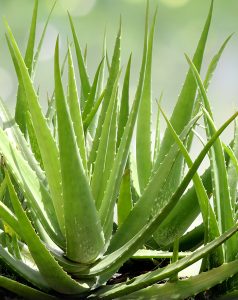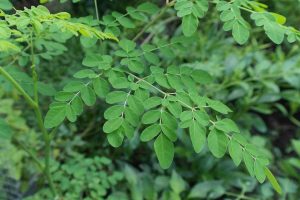Plants that Heal

Many of our current medications come from plants and the natural world. Because we take them in tablet form, or as a cream or gel we often do not realise their origins. Can plant-based medications work? Yes, definitely. As a Congregation with “Rooted and Founded in Love” as our motto, we take our natural world seriously! For this reason we are also concerned about the effects of climate change on medicinal plants. Many scientific researchers are warning us about this. https://researchrepository.murdoch.edu.au/id/eprint/54348/1/medicinal%20plants.pdf
Here we present two of the medicinal plants that our MMM Sisters use in their daily lives.
Aloe vera, or Aloe barbadensis, is a thick, short-stemmed plant that stores water in its leaves. This forms the gel which seems to ooze out of the leaves. It is best used when rubbed onto the skin. It is widely used for sunburn, for skin conditions and for the healing of wounds. It has anti-oxidant and anti-bacterial qualities.
Some studies suggest that it may also be useful as a mouthwash in inflammatory conditions in the mouth, for swollen or bleeding gums, mouth ulcers and it may reduce the build-up of dental plaque.
Sometimes people recommend aloe vera to be taken orally for conditions like constipation or reducing high blood sugars, but the studies are incomplete and they may in fact, conflict with other medications. It is best to consult with your doctor before being too adventurous.
 Moringa oleifera is a plant that is often called the drumstick tree, the miracle tree, the ben oil tree, or the horseradish tree. It is a native plant in India but it also grows in other parts of Asia, Africa and South America. Moringa contains many healthful compounds such as vitamins A, B1 (thiamine), B2 (riboflavin), B3 (niacin), C (folate and ascorbic acid) and many minerals such as calcium, potassium, magnesium and zinc.
Moringa oleifera is a plant that is often called the drumstick tree, the miracle tree, the ben oil tree, or the horseradish tree. It is a native plant in India but it also grows in other parts of Asia, Africa and South America. Moringa contains many healthful compounds such as vitamins A, B1 (thiamine), B2 (riboflavin), B3 (niacin), C (folate and ascorbic acid) and many minerals such as calcium, potassium, magnesium and zinc.
It has been used in traditional medicine for thousands of years. However, there are few scientific studies on its benefits. To date, studies show that Moringa oleifera may lead to modest reductions in blood sugar and cholesterol. It may also have antioxidant and anti-inflammatory effects and protect against arsenic toxicity.
It protects and nourishes the skin and hair, it can treat some digestive problems such as constipation, ulcerative colitis and gastritis.
Moringa leaves, which are widely available in Africa, are also highly nutritious and are beneficial for people who are lacking in essential nutrients.
As with all medicinal plants, use with care and after checking with your doctor.
